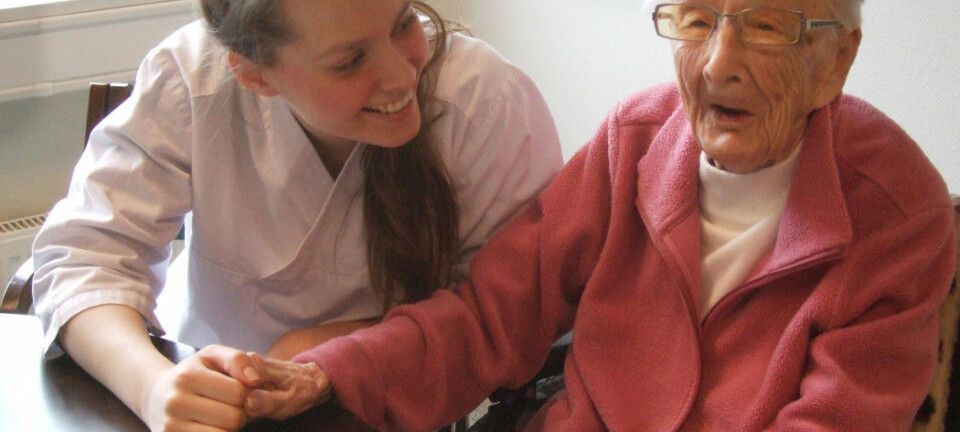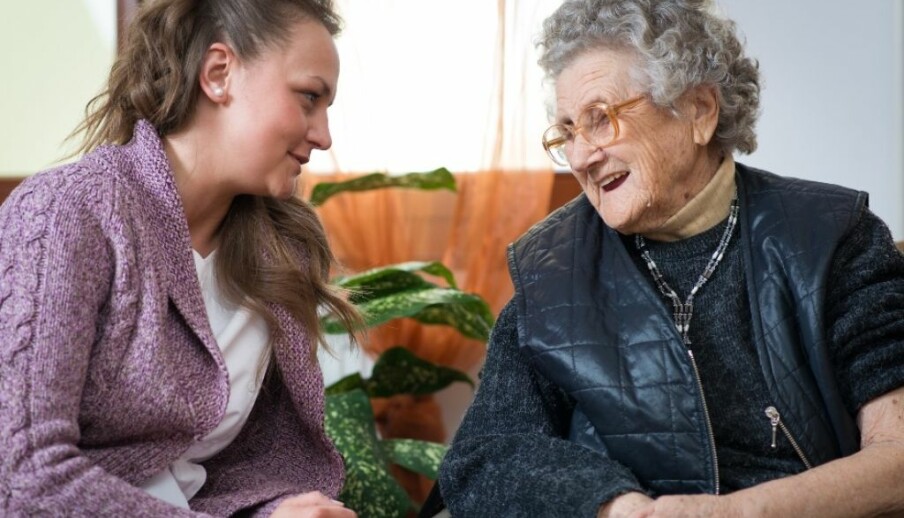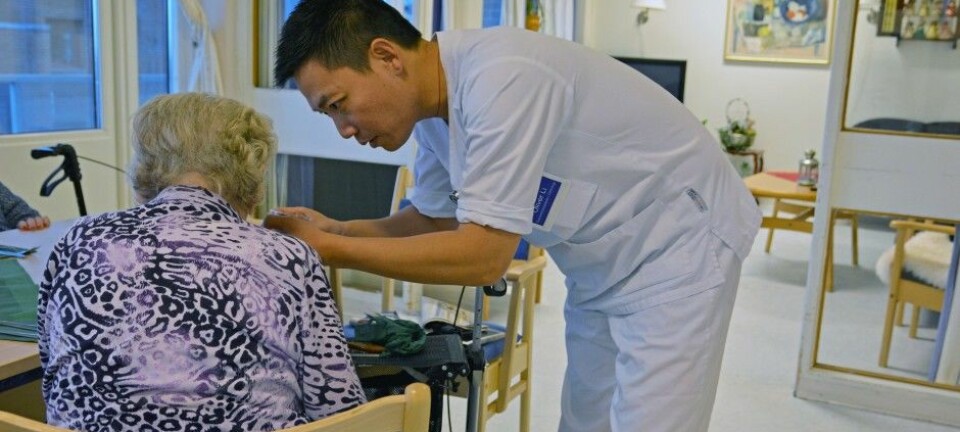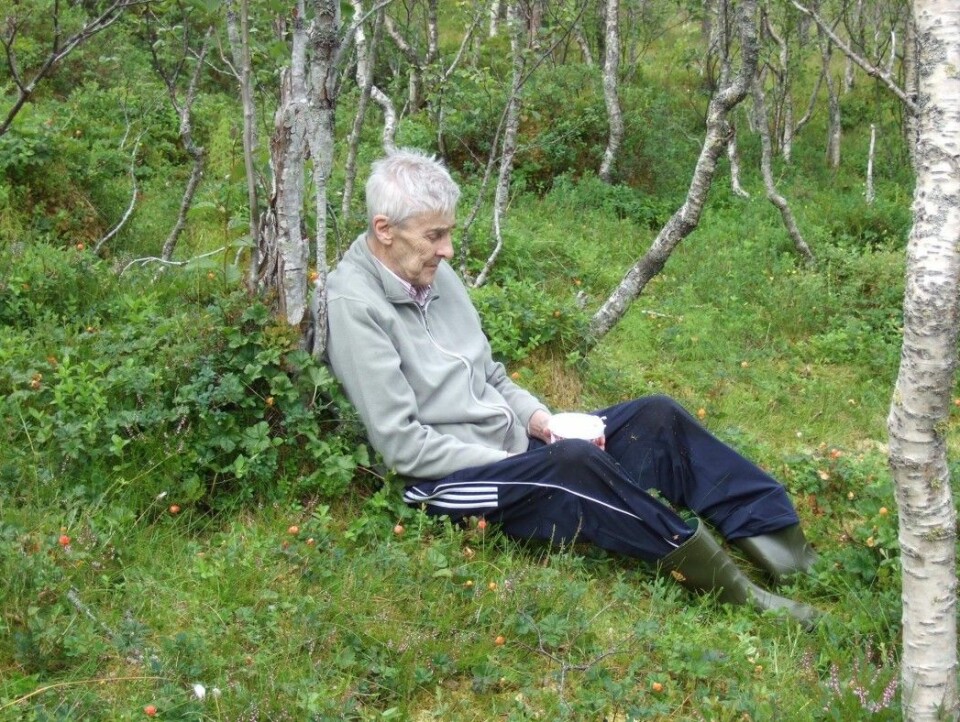
Researchers create social solutions for municipal elderly care
"I can't complain," researchers were told when they asked older residents about the help they receive from municipal elderly care. After all, they receive support for their medical and practical needs. But something important is still missing.
Older people who live at home say that what they miss most in the elderly care they receive is getting out, meeting others and doing things that have been important in their lives.
Now the municipalities of Steigen and Tana have launched their own projects to strengthen social care for the elderly.
Researcher Helga Eggebø and her colleagues at Nordland Research Institute and the Western Norway University of Applied Sciences will follow these projects closely in a research project that is starting now. The researchers want to create a model and a handbook that will be useful for other municipalities as well.
Their research is closely linked to the government's 2018 elder reform Leve hele livet - Live your whole life. This reform proposes 25 solutions and several hundred examples of services that are highlighted from municipalities in Norway. They revolve around areas that usually fall short in services for the elderly: food and meals, activity and community, health care and service integration.
Interviewed elders at home
Eggebø and her colleagues have been to Steigen and Tana before.
They interviewed 28 older residents between the ages of 80 and 96 in the two municipalities for a recently completed research project. The interviewees all lived at home and received home services. In addition, researchers interviewed relatives, as well as employees, managers and representatives from the volunteer organization.
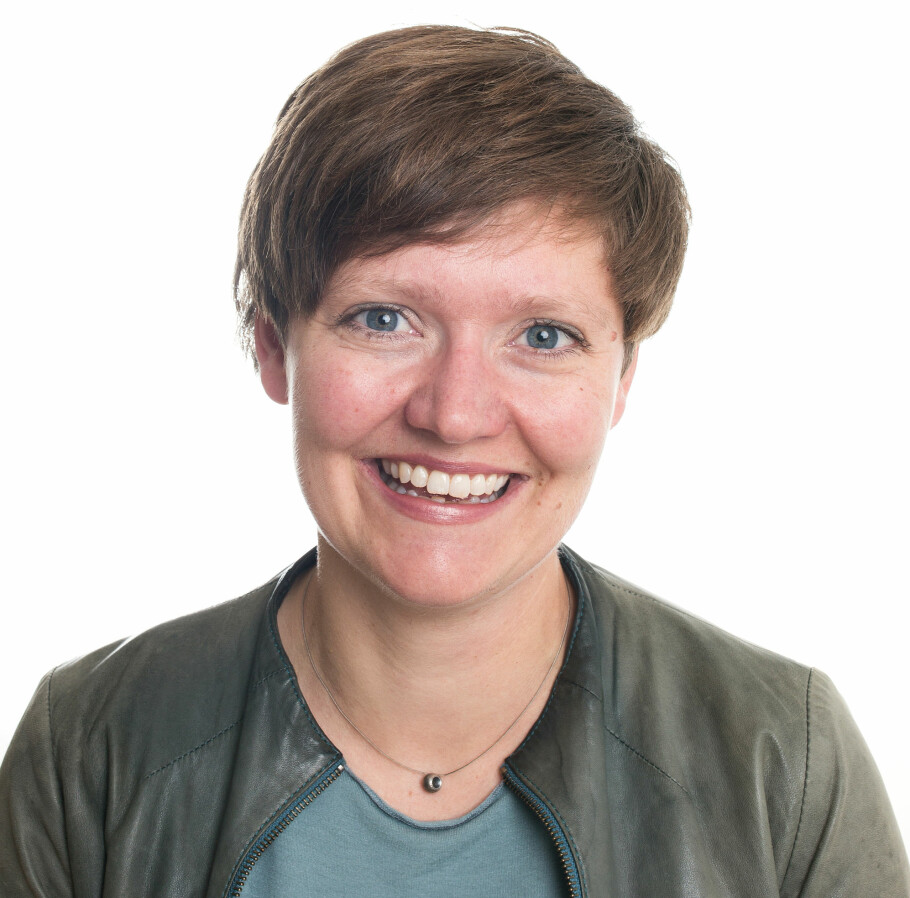
In both municipalities, the researchers were able to come into people’s homes to interview them. They started by asking elders what it was like to grow old in Steigen or in Tana. It didn’t take long for the participants to start telling their life stories.
When the researchers asked people about the help they received from the various care services, elders expressed that they were getting the help they needed as far as their health, home support and practical help with cooking, showering and dressing went.
However, they missed having someone to talk to and something meaningful to do during the day. Many elders expressed that they wanted help to get out of the house to see other people.
But they didn't feel like they were being listened to.
"You just need to stay home"
"I can't complain" was an oft-repeated phrase. The elders did not expect the home nurses to help them get out.
“Our main finding from this study was that social care appears to be a blind spot in Norwegian elderly care,” says Eggebø.
“Elderly care is primarily aimed at providing the necessary health care and practical assistance in the home, such as hygiene and housekeeping. Medical issues are prioritized and social needs are not.“
A woman in her 80s described her situation:
"When they're here to bathe me and put on my socks, I tell them I’d like to go to the café. But they don't answer me when I bring that up. No, they’re just there to bathe me, so I’m told I just need to stay home."
Dancing in the Netherlands, cloudberry picking in Finnmark
Many international studies show the same thing: good social relationships and meaningful activities are important for people.
“This isn’t new. But it’s still something worth bringing up in the service agencies,” says Eggebø.
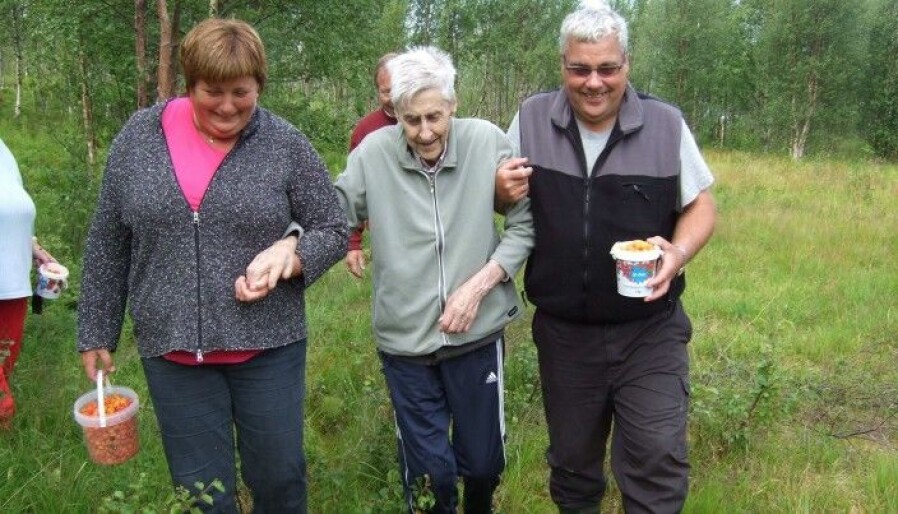
Which activities people experience as meaningful are closely linked to the lives they’ve lived, what they know, where they’ve lived and the time they’ve lived in.
For example, a study of dementia in nursing homes in the Netherlands shows the importance of organizing dance activities for elders, says Eggebø.
“The people we studied in Steigen and Tana who were born in the 1920s and 1930s lived completely different lives, so other activities are important to them. Their interests are mostly related to farming, fishing, food preservation, berry harvesting, and tending animals in the mountains,” she says.
Linked study to elder reform
The researchers' findings point out the need for social, structural and organizational changes in the approach to care.
The Norwegian Parliament’s recent elder reform highlights activity and community as one of five key areas where today's offerings for older people fall short and where coordinated efforts need to be made.
“We’re coordinating with the government reforms and are a little ambitious. We want to contribute by researching two municipalities that are each implementing their own social care initiatives,” says Eggebø.
Two different projects
The projects in Tana and Steigen are very different, Eggebø says.
Many good activities already exist in Steigen that people could participate in, but there are two important barriers. One is a lack of information and the other is a lack of transport, says Eggebø.
A coordinating link is needed in order for people to be able to take advantage of what is available. This requires resources and organization.
Steigen is now establishing a social care team involving volunteer organizations, home caregivers and the home health services. They will come together to discuss how to strengthen social care.
“They recognize that the in-home caregiver is an important person for reaching people. This is a person who comes every week and develops a relationship with elders over time. Part of the project is to draw the home caregivers more into the professional work of the home health services."
Eggebø believes this could contribute to a better care situation where people are seen and cared for.
Need to broaden care services
Mariann Johansen Lindi heads the project in Tana. She believes that the first research project was a real wake-up call for people working in elderly care in Tana.
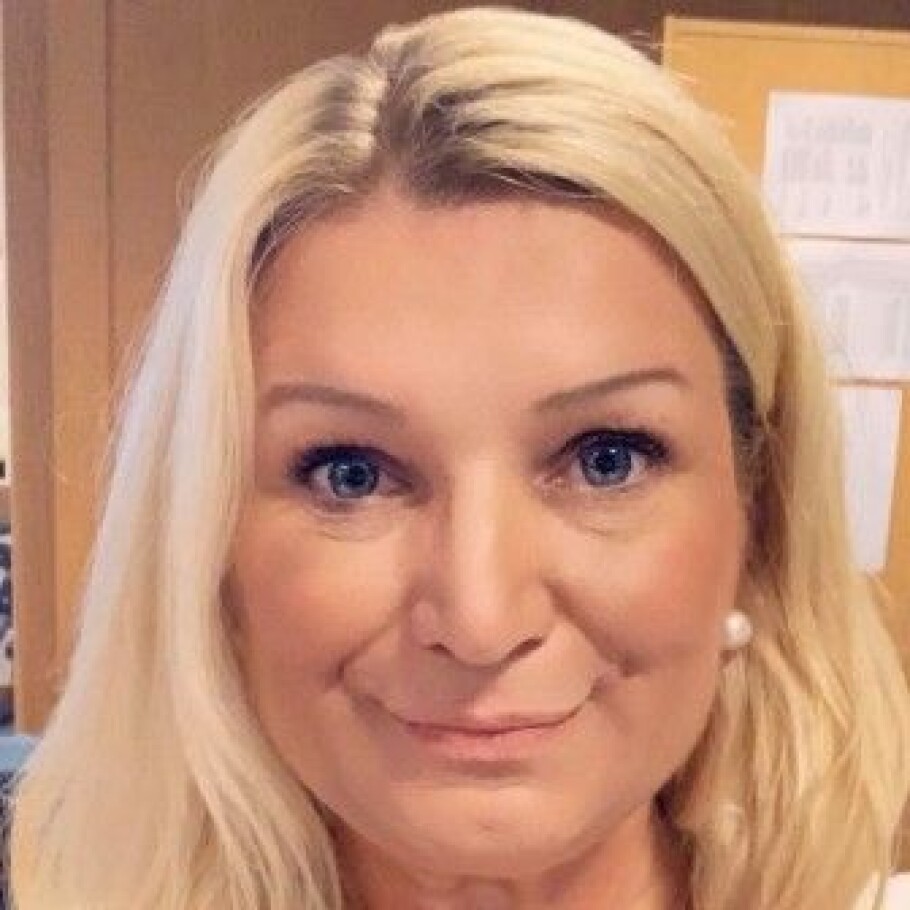
“We realized that we have to become better at social care as part of the service offerings. We’re probably still hanging on to the old institutional ways of thinking. We need to broaden care services for the elderly, so they don’t just consist of nurses and assistants, but also other professional groups, like environmental therapists,” Lindi says.
Tana is a widely dispersed municipality in Finnmark county. Villages are far apart from each other and some have only a few inhabitants. One village at the far end has only 11 residents.
The people who live in Tana come from different cultures. The population speaks Norwegian, Sami and Finnish.
Tana has been investing in rural cafés in collaboration with the local communities. Although the focus is on older people living at home, the cafés are open to all. The idea is that the cafés should bring together different generations.
Has become very popular
Lindi also manages the Volunteer Centre in the municipality. They have a nine-seat passenger vehicle to pick up people who want to go to the village café.
“The café has become very popular. A lot of older folks think other people are busy with their families and other things, but when they meet they realize that many people are also spending a lot of time alone at home. One time, two neighbours hadn’t seen each other in seven years. At the café, they reconnected and began to figure out how they could help each other, like with shopping,” Lindi says.
A person from Frisklivssentralen, the Healthy living centre, comes into the café to inform people on topics like diet, lifestyle diseases and to give advice on things people wonder about, such as using a hearing aid. A physical therapist provides exercise and balance training for the participants.
Fishing on the Tana River
Residents of Tana have a close relationship to the Tana River, which flows through the municipality.
Because the municipality of Tana has a large Sami population with roots in reindeer husbandry, sea and river cultures, the municipalities have employed two Sami activity therapists. One of them travels around to people throughout the municipality and arranges for them to get outdoors, for example to light a campfire and make coffee or fish in the river.
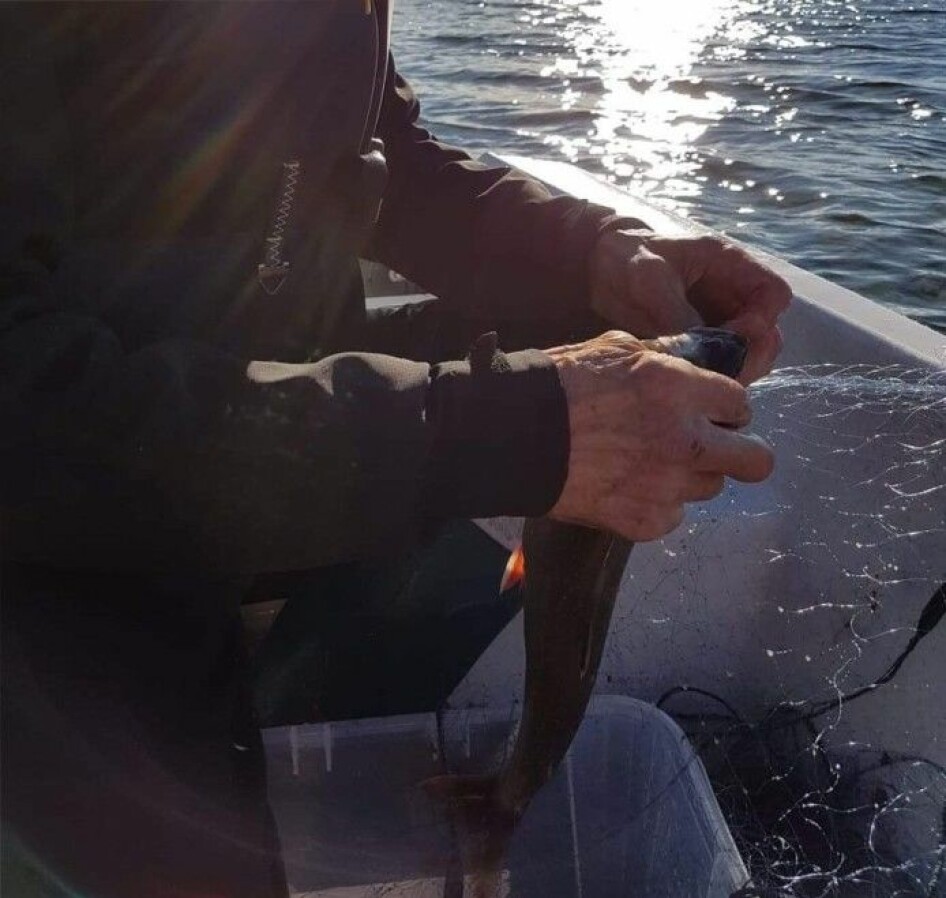
“The point is that people should get involved in activities that have been an important part of their lives. They should be able to touch the earth, look at the landscape, hold tools and cook. These activities help them access memories and give a sense of connection to life, the place or to other people,” says Eggebø.
References:
Eggebø, Helga, Mai Camilla Munkejord and Walter Schönfelder 2019: Land, History and People: Older People's Stories on Meaningful Activities and Social Relations in Later Life, Journal of Population Ageing.
Munkejord, Mai Camilla, Walter Schönfelder and Helga Eggebø: Social care – From Blind Spot to Key Activities in Home-based Elderly Care? (English summary) , Tidsskrift for omsorgsforskning 4 (03): 298-306, 2018.
———








